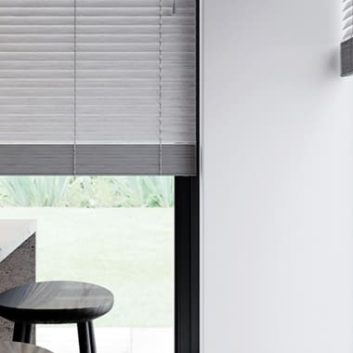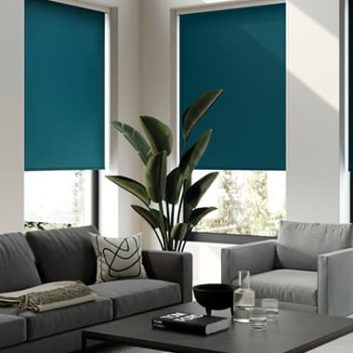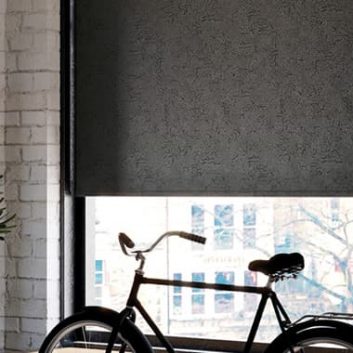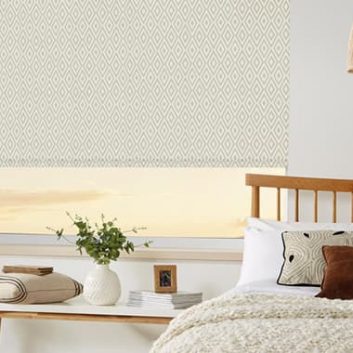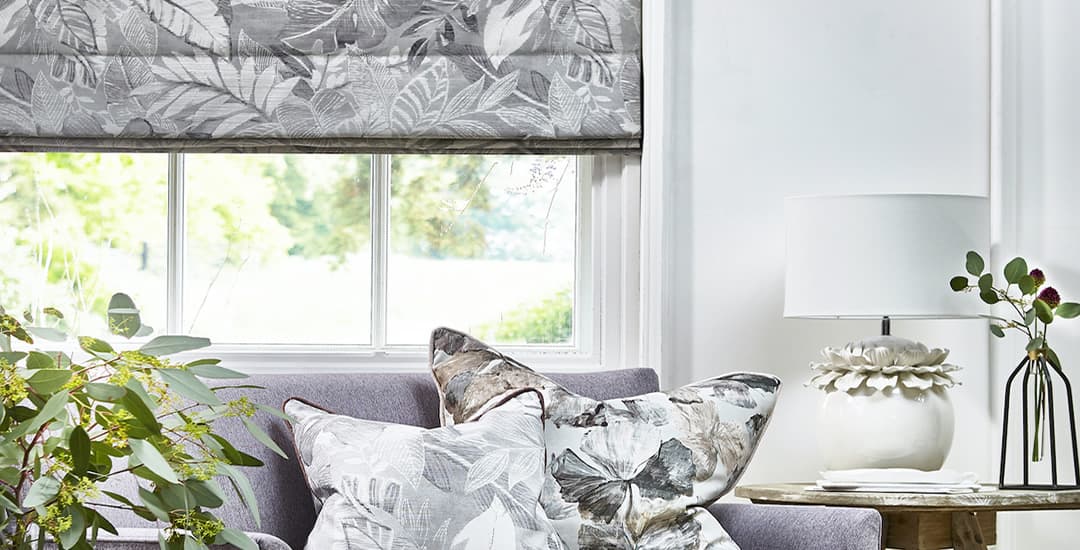
Which blinds are most expensive? Generally this will be Roman blinds, although premium quality real wood blinds and new-to-the-UK-market day and night blinds often come close to Romans in terms of cost.
If you came here to get a broad idea of how much you should pay for blinds in the UK, you may have taken a wrong turn at the last junction, and I suggest that you set your GPS for my previous post on this exact topic instead.
However, you might be wondering about the comparative costs of different types of blinds because you’re trying to determine if your potential outlay is justified, or because you’ve realised that your own taste in blinds runs towards the Michelin-starred end of the price spectrum and are wondering why it isn’t a bit more McDonalds.
Whatever the reason behind your burning questions about which blinds cost the most, this blog post will attempt to enlighten you on the reason for the sometimes-significant variance in the cost of different blinds. I’ll cover which blinds are most expensive based on a few different metrics, like readymade versus made-to-measure, and the relative price points of different types of blinds too.
What makes some blinds more costly than others?
This depends on factors including the blind type or style, whether it is readymade or made to measure, the quality, any special features you choose, and potentially the type of controls you want too. Moving on, I’ll break down each of those points in a bit more detail.
Which blinds are most expensive in terms of types?
Some blinds are far more costly to make due to both the materials used and the complexity of crafting them; and even the cost of shipping any given blind (due to its weight and dimensions) can vary hugely.
For instance, a wooden blind costs more in terms of materials (real sustainably sourced wood) than a roller blind, as well as being far more complex to make. This makes wooden blinds more costly than roller blinds as a rule.
There may be the odd anomaly in terms of which type of blinds are most expensive from any given retailer in any given size, but when it comes to made-to-measure window blinds ranked from the most expensive to the least expensive, the usual running order would be:
Roman blinds. £££££££
The Roman blind is King Blind. Or perhaps more Queen blind; you really will not find a more fabulous blind than a Roman, and doesn’t she just know it.
Day and night blinds or zebra blinds. ££££££
Day and night or zebra blinds combine an appearance that makes them a feature all on their own, technical creative requirements, and mad skills in the light filtering department.
Wooden blinds. £££££
Wooden blinds are of course a natural material, and this comes at a premium cost, unless you get your wood from Rainforest Destroyers R Us, which we personally do not. Eco-friendly, natural, cool, many light-filtering functions; that’s wooden blinds.
Faux-wood blinds. ££££
Faux-wood blinds are not the blinds equivalent of “genuine imitation leather” next to their real-wood mentors; these are the amphibious cousins of wooden blinds, often being indistinguishable from the real thing other than by virtue of the fact they don’t turn into a Gremlin if they get splashed.
Vertical blinds. £££
Vertical blinds are a real workhorse in blinds terms; block light? Done. Filter light? On it. Cover a huge window without bringing down the whole wall due to excess weight? No drama.
They’re also economical to buy, and far more chichi in terms of modern styles and colourways than many people realise.
Venetian blinds. ££
Venetian blinds are made of narrow aluminium slats that can be made in every colour of the rainbow and many more besides, and they’re versatile, low-profile, and not overly spendy.
Roller blinds. £
Finally, roller blinds; “you don’t need to be a high roller to get a new roller.” (You have NO idea how long I’ve been waiting to use that little gem. NO idea.)
Roller blinds are not only the cheapest blinds to buy but overall the most popular, as they suit any room and come in the widest range of colours, styles, and patterns. If you want to get blinds but don’t want to spend all of your beer money, I strongly recommend you get the taste for rollers.
Which blinds are most expensive, made-to-measure or readymade?
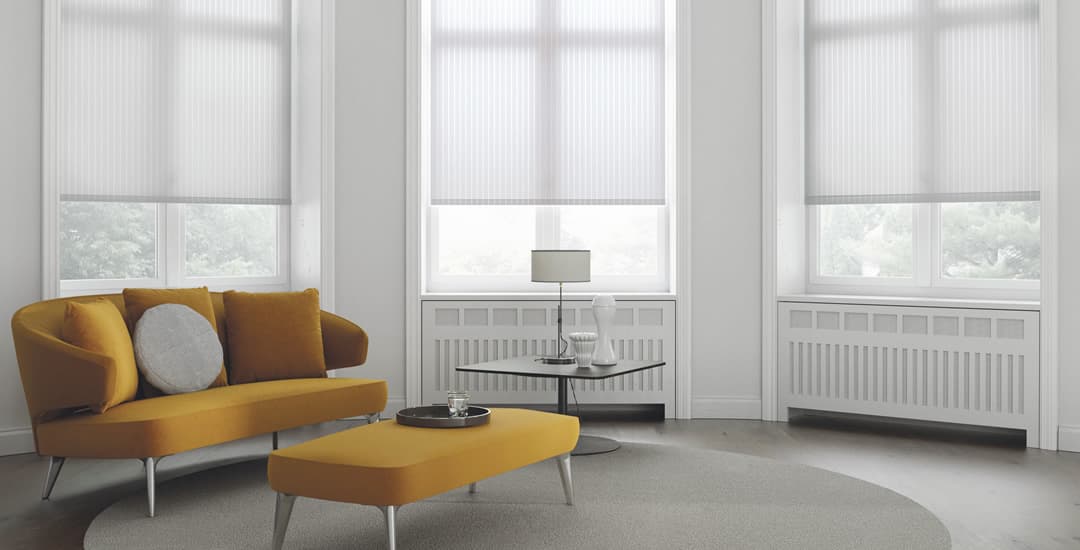
Which blinds are most expensive, readymade or made to measure? If I tell you that the purchase price of the average made-to-measure blind will usually be quite a step up from a readymade of the same type, the answer to this question might seem obvious.
However, if I then tell you that a made-to-measure blind will generally last anything from 3-6 times longer than a readymade of the same type, the waters get a little murkier.
In terms of initial outlay for window blinds, whether you buy readymade or made to measure definitely dictates which blinds are most expensive based on initial outlay alone.
Over the medium to long term though, made-to-measure blinds are far more economical and cost less than readymade blinds, the latter of which will almost always need replacement every 2-5 years at best, compared to made-to-measures, which rarely last for less than a decade and often for nearer to two!
If you want to learn more about why made-to-measure blinds cost more to buy but also, ensure you get your money’s worth many times over, I have gone into this at some length in this blog post.
The quality of the blind
Quality is integral to the cost of a blind; and going back for a moment to the readymade versus made-to-measure issue above, made-to-measure blinds are always far better quality, for reasons that are again outlined in the link I just shared.
However, even within the readymade blinds pool and the made-to-measure blinds pool respectively, there will always be variations in quality.
The quality or prestige of the material used for the blind (whether that be fabric; a cotton versus a silk, for instance, or a type of wood, or anything else), the quality and standard of production of the fixtures and fittings, and the quality of the craftsmanship all factor in.
A high-quality blind will always be more expensive than a slightly flimsy or trash-tacular one!
The size of the blind
This is a fairly obvious one, but worth mentioning nonetheless, again with a “but actually,” just like the plot twist I introduced regarding purchase cost versus lifetime value earlier.
As you might fairly expect, a dinky blind will cost significantly less than a hugenormous blind.
My “but” is that the price increase increments pertaining to blind size increments are not generally linear.
For instance, you get more blind per ££ from a large blind than a small one; so say, if you priced up a 30cm wide blind and it came to £15, you might expect that a 150cm wide blind of the same type might cost you £75, or five times as much; when in fact it would cost nearer £35, or 2.5 times as much for five times as much blind.
I just used one of our own roller blind product pages to do the ersatz maths here, so feel free to have a go yourself and you’ll see what I mean.
Short version: large blind, more expensive than small blind, but benefits from the economy of scale too.
Any special features or additions will also affect which blinds are most expensive to buy
Start fancying things up, and the cost of your blind will increase too. Blackout linings or coatings, shinier controls, premium header rails and so on are all that sort of things will add up to a slightly higher spend on any given blind.
However, this isn’t generally a massive catfish, like new cars that are priced “from” £5,995 but if you want luxury features like say, a steering wheel and seat belts, you’ll be looking at nearer £12k; the added cost of making a blind as a blackout blind for instance is usually small, as are small upgrades like choosing chrome controls and so on.
In closing though, there is one thing that can dramatically increase the cost of any blind (by more than double, in some cases) should such an option be available… This is if you integrate mechanical controls or particularly, smart home functionality and/or remote controls to a blind to negate the need for you to get off the sofa (or even be at home) in order to to adjust your blind.

